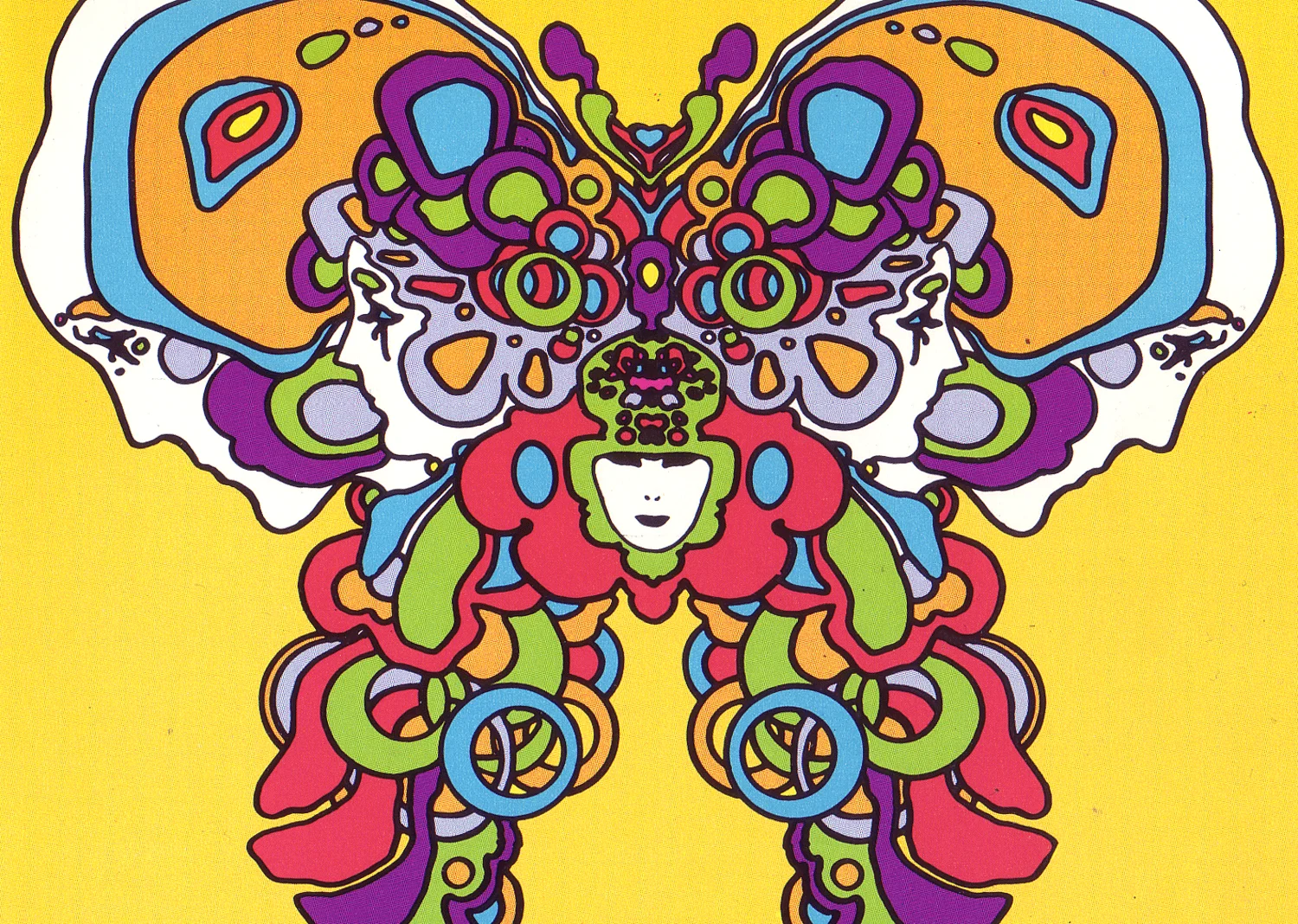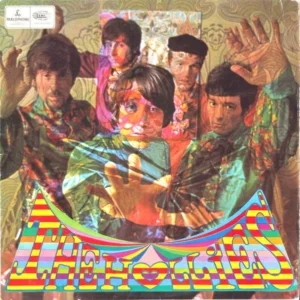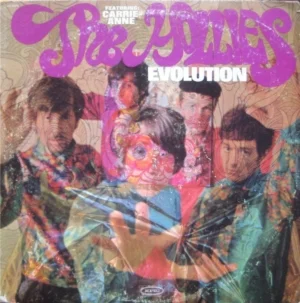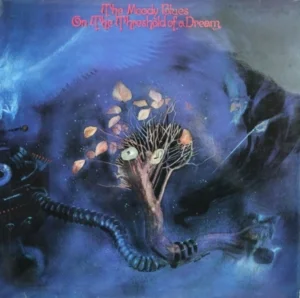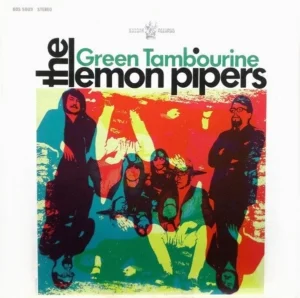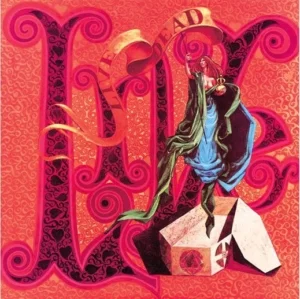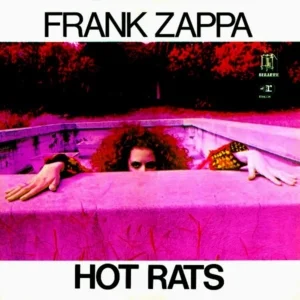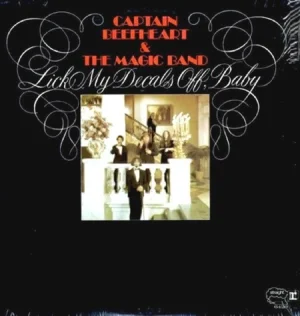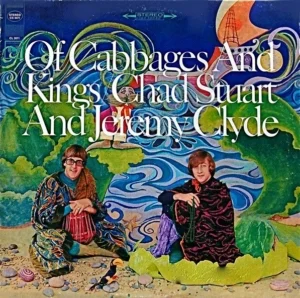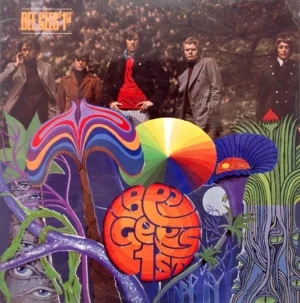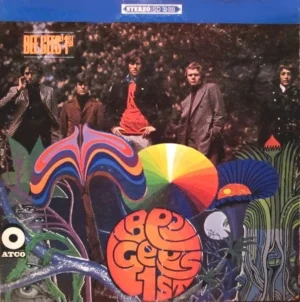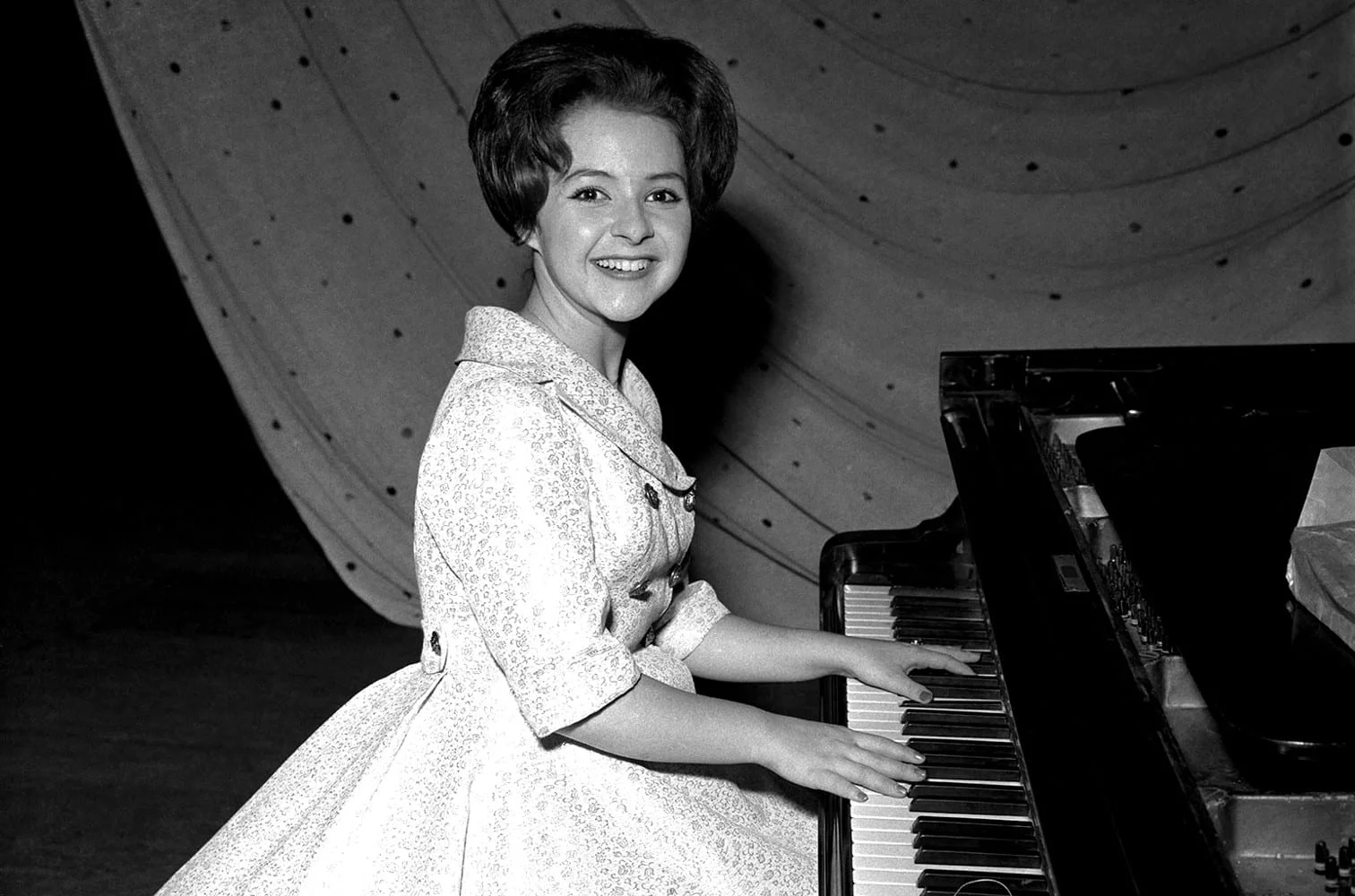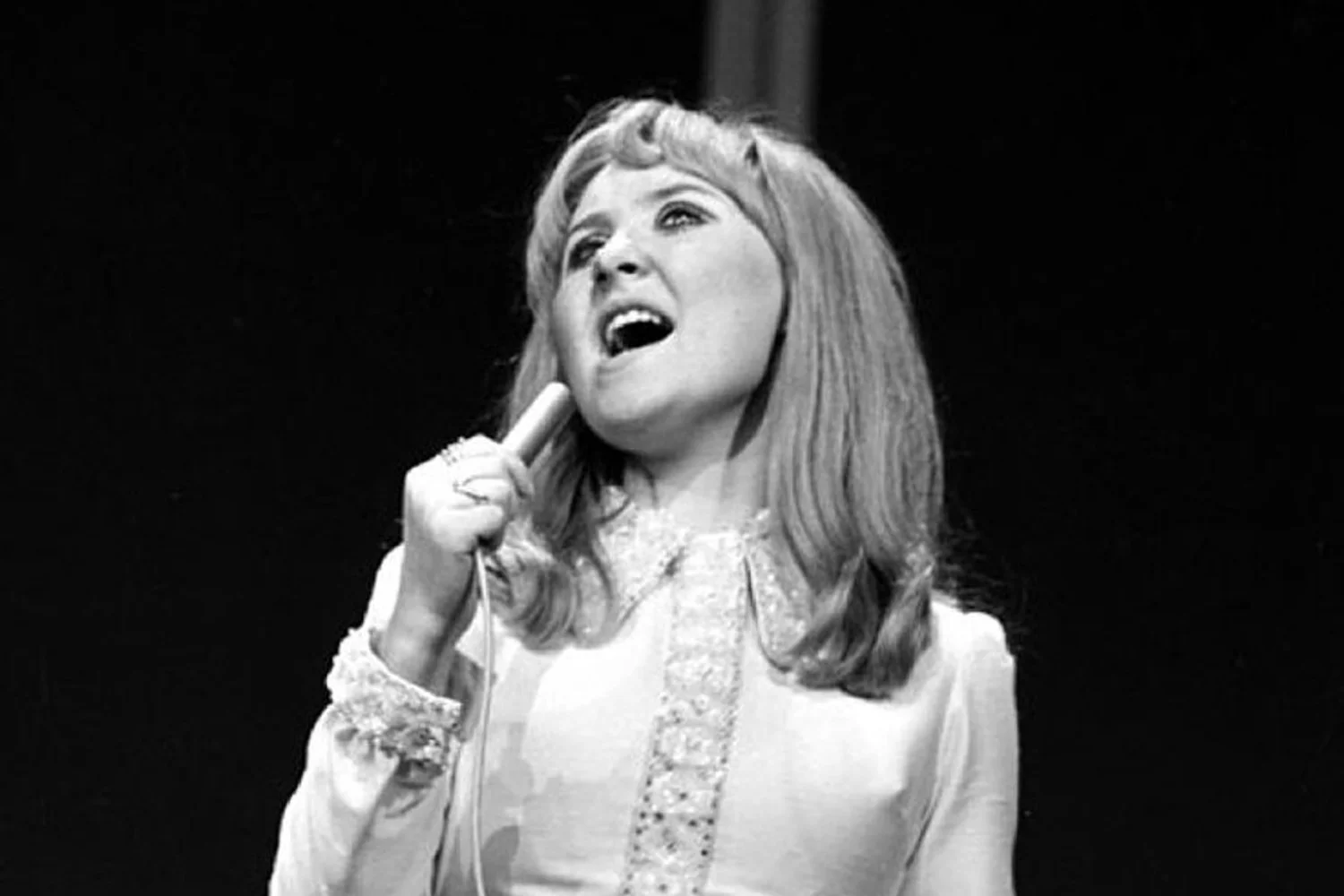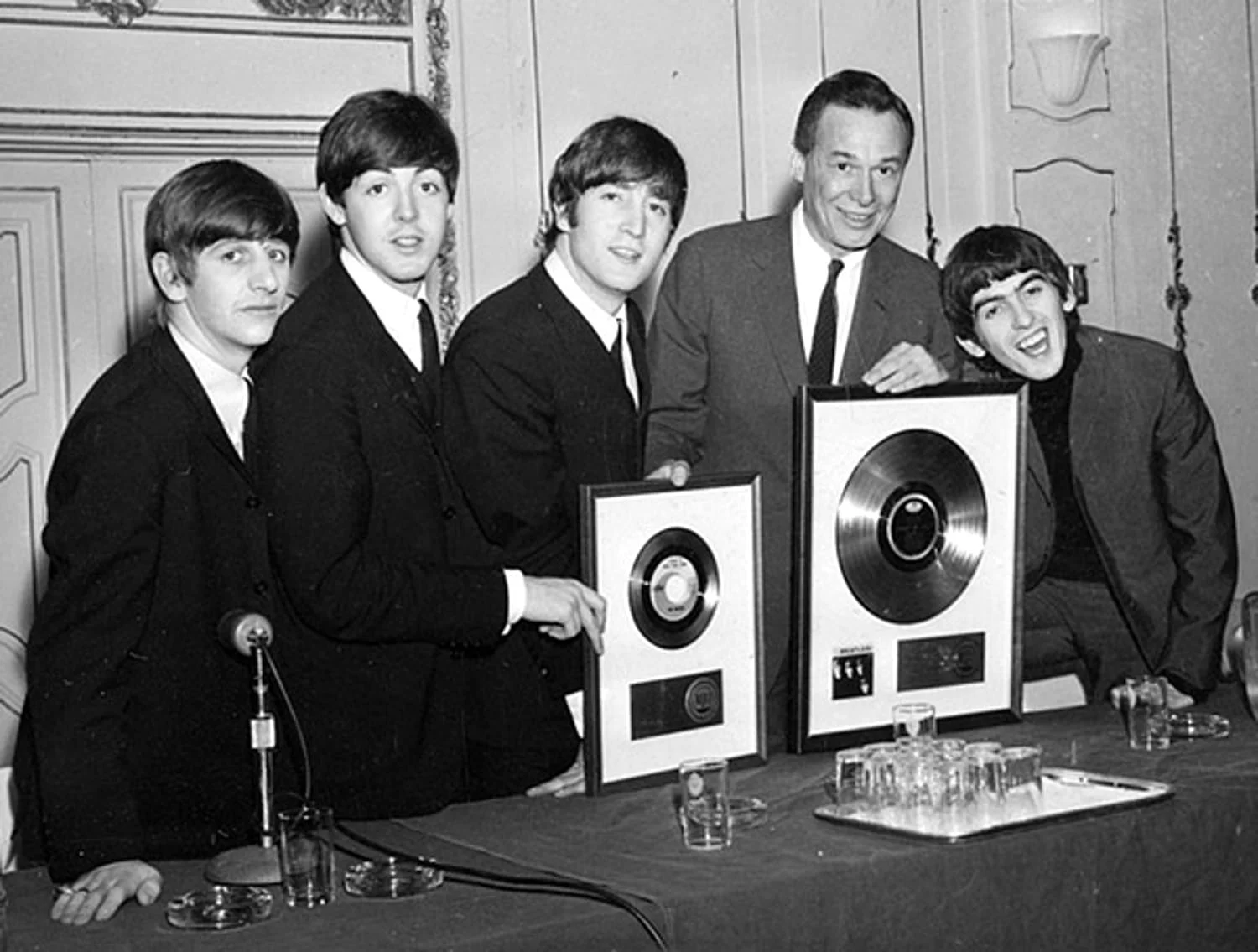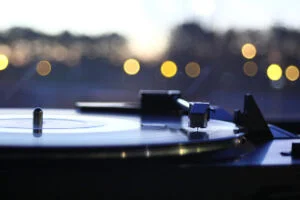Estimated reading time is 35 minutes.
I INITIATED A NEW TOPIC on the Record Collectors Guild website in September 2004 titled “The Pseudo Psychedelic ’60s.” I had hoped for a lengthy and engagingly argumentative and informative thread that went on forever. Below is what I got instead: it was fun, but I did not really leave it with more knowledge that when I launched the conversation.
The topic was sparked by a question that I had received on an earlier thread regarding the use of the term ‘psychedelic’ to sell records in advertisements on the internet. It elicited this response from me:
“The only people who have any problem knowing what constitutes psychedelic music are those who have never done psychedelics. The problem refer[ed] to above is ubiquitous, hence meaningless. But, nothing said by any seller anywhere will change whether or not the record contains psychedelic music.”
If you are not a record collector, you would be astounded to know how many records that have absolutely nothing to do with psychedelic substances and their effects on the mind are listed as ‘psychedelic’ because the seller knows it will get those who don’t know to bid—and bid HIGH.
Minor editing was done for this reprinting: I deleted posts that had nothing to do with the topic; I corrected some errors in grammar and punctuation; I applied a (sorta) uniform style to all of the posts. When I thought that a post would make more sense with the inclusion of a few words, I added them; they are easily identified as I placed them in brackets (‘[]’), which are called square brackets in British usage).
Finally, my conversation is in standard black print while everybody else’s is in red print. The final finally: this is a very lengthy piece. You will need a lot of free time to read it at one sitting.
The top image is how British fans saw the Hollies’ EVOLUTION album when released alongside SGT. PEPPER. The bottom image is how American fans saw the album. While it is reflexive to prefer the original especially with British pop music and records of the Sixties. I think that the art department at Epic did a boffo job of making the cover artwork superior to that of the EMI people. The music is basically straight-ahead pop-rock with a some pseudo-psychedelic flourishes.
The fairyland of love
NU: I thought I might inject a little life back into the conversation on Sixties psychedelia: how about singles that were hits that do not appear to be psychedelic and would never, ever be sought by psych collectors, but nonetheless reflect the ‘hippytrippy’ atmosphere of the ’60s?
For instance, years ago, a friend pointed out that The Rain, The Park & Other Things by the Cowsills was, essentially, about the narrator, obviously a ‘square,’ coming across a young hippie chick in the park beneath the rain and becoming entranced.
The swirling string arrangement and modest production effects can be interpreted as his having his mind ‘blown’ by the encounter. (Thanks to Rich Rockford.)
Or the Association’s Windy with the line, “Who’s tripping down the streets of the city, smiling at everybody she meets?” Nobody “trips” down the streets unless they were falling over or they were . . . tripping. Supposedly, this song was written about an actual person who was nicknamed Windy—a young man who always had access to the best acid in town!
My current fave in this genre is Tuesday Afternoon by the ever-underrated Moody Blues, in which the narrator has a normal mid-week walk transformed into something other. Go back and listen to the lyrics as a reflection of transformation and then dig where the effects come in. Needless to say, other such interpretations should be proffered by all and sundry.
Uncle Hippie: Yeah, I’ve always thought the Moody Blues’ albums from 1967 thru the early ’70s were very psychedelic. From the cool artwork on their album covers to the neat gatefolds, to the music on their discs.
Annaloog: I’ve thought that many of Justin Hayward’s better-known lyrics bordered on the banal: Tuesday Afternoon is one example, with lines about “the fairyland of love”—although songs like “Cities” were rather well done. He was a better tunesmith than lyricist.
Uncle Hippie: I don’t know about that, Annaloog. I think Justin Hayward’s lyrics are cool and trippy.
NU: Annaloog, I wouldn’t really argue with your assessment of the lyrics being banal—I find that generally true of all Moody Blues songs. But, the song appears to be a genuine attempt to translate some aspect of the psychedelic experience into a song.
It is ignored by psych collectors that believe that without a fuzz guitar, demented vocals, blah blah blah—it ain’t psychedelic. Plus this was a fine single, bringing [some aspects of] tripping to a broad audience unbeknownst to listener or programmer.
Uncle Hippie: Neal, good point and a perspective I hadn’t considered before. I wasn’t so much criticizing the song (which I like despite the choice or words) as Hayward’s lyrics in general. Thanks for the insight.
The Moody Blues will probably remain a contentious topic (as rockers, as psychedeliticians, as quality music) until those of us who lived through the ’60s and ’70s are dead. ON THE THRESHOLD OF A DREAM (1969) may be their most consistent album although it features none of their signature songs.
The best way to travel
Vinyliszt: To hear The Best Way To Travel on headphones while your mind is away on mental vacation, or to see [the movie] Yellow Submarine when George Harrison’s song (It’s All) Too Much at the beginning when the white light becomes overpowering.
Everything (music, songs, etc.) on acid was different from non-tripping and could not be seen in the same light (pun?). We may laugh now at what some consider banal, but back then, under the right conditions, the lyrics meant something, even though, when one was back to normal they may not have.
It’s the experience and everything that goes with it. The whole of IN SEARCH OF THE LOST CHORD is a trip. It meant something. Now I’m too old to remember what—but hey, I was wearing white before John Lennon!
Uncle Hippie: Hey Vinyliszt:, cool post! The Moodys put out a bunch of classic albums back in the late ’60s. I’ve always wondered who wrote the lyrics (poems) on the back cover of DAYS OF FUTURE PAST?
Besides being far out and trippy, the lyrics to the whole album were very insightful for young dudes in their mid-20s—all about life and death. The lyrics make you think. It’s doubtful that any of today’s young bands could write anything so good.
Vinyliszt: Uncle Hippie, after I submitted my post I realized that it sounded too serious when I really meant it in a light note and also I forgot to put smilies in the proper place to show that I wasn’t trying to come across as some old, stuffy dude. But I’m glad no one challenged my seeming attitude.
I did hear those same sounds plus many others. It was another state of mind; I’m glad I experienced but it would have not been the same if it wasn’t for the music of the times, particularly the Moodys.
They didn’t ask anything of you except to listen. Them and preparing with the book The Psychedelic Experience and following its instructions for a happy and successful trip.
Now, I don’t need to drop acid, I just put the Moodys on and listen through headphones and the wonderful memories emerge sans the frightening moments. Thinking IS the best way to travel!
NU: My faverave Moodys album will forever afternoonly remain ON THE THRESHOLD OF A DREAM,—coincidentally one of the first albums I heard whilst on the threshold of my first psychedelic experience. I have argued forever and a day that today’s psych collectors should pay more heed to the opinions of non-collectors who tripped then regarding what was listened to and why.
But I have read opinions from wannabe authorities claiming that the Dead aren’t psychedelic! Where in Aoxomoxoa’s name do these twits come from (and why wouldn’t they wanna know what you know)?
A number of years ago, when my name was a bit more prominent, I was suggested for a place on the Rock & Roll Hall of Fame board that votes on inductees. When I made it understood that I would immediately start arguing for certain unwanted ’60s artists to be inducted, any consideration for me on the board was dropped.
Those artists included Neil Diamond, the Grateful Dead, the Hollies, the Monkees, and (of course!), the Moody Blues, only one of which have made the grade since then. So, enough about The Moodys: what about silly ’60s pop songs with pseudo psychedelic allusions?
Uncle Hippie: Hey Neal, here’s a few: Green Tambourine by the Lemon Pipers, Yummy, Yummy, Yummy by the Ohio Express, and Incense And Peppermints by the Strawberry Alarm Clock.
Most aficionados agree that the Lemon Pipers’ 1967 hit single Green Tambourine was a non-psychedelic confection (and one of the harbingers of bubblegum) that we all enjoy nonetheless. It should be noted that many of the other tracks on this album contain both fiber and other nutritional qualities.
The eye of the beholder
Annaloog: Anything by the Yellow Payges—and for that matter, pretty much anything in the early UNI catalog, especially Strawberry Alarm Clock and Fever Tree.
Dkurtis: I find it funny to hear the stories of bands who were forced to record a psych song by the producer. In the Strawberry Alarm Clock’s and the Lemon Pipers’ case, it turned out to be their only hit. Now we may know why there are so many one hit wonders.
NU: Actually, Incense And Peppermints (which I consider bubblegum flavored psych) is just about the least psychedelic thing the Strawberry Alarm Clock recorded!
Epiclectic: Ultimate Spinach seemed to have some rather trippy lyrics. (Wish I still had that album, don’t know where it went). Crystal spiders and such, if I recall.
Jackcapture: Funny you asked that Neal—I was just thinking it on the way home as I heard Lovin’ Spoonful’s Daydream. Either its just a girl, or a girl who might be named something like Loretta Susan Dodd.
NU: Daydream may be stretching it—but then, the singer is Lost in a Sweet Dream (ho ho)!
Vinyliszt: Neal, sorry to go against your musical taste, but I can see why you were not accepted. Anyone that argues for Neil Diamond and the Grateful Dead just doesn’t have all of the marbles necessary for such a position. They were unwanted (possibly) for musical reasons: neither left an indelible mark on the music scene.
Yes, they got some fame and some made a few bucks but they left nothing worthwhile, musically speaking. You probably thought that Frank Zappa, Lord Sutch, John Mellencamp, Warren Zevon, and other non-contributors deserved the honor also.
Dkurtis: Vinyliszt, sometimes silence comes across as wisdom. I would have to agree with Neal and, yes, I do think Zappa and the Dead have left something “worthwhile, musically speaking.” You speak as one who is interpreting history rather than one having lived it.
Uncle Hippie: Yeah, how can you say the Grateful Dead and Frank Zappa contributed nothing? Man, they influenced tons of great bands, not only at the time they were recording, but also later bands as well. I play their albums all the time.
Metrognome: I don’t like the Dead or Zappa, but even I wouldn’t say they left nothing important in their musical legacy. Both remain hugely influential, though I will say the Dead’s legacy seems more about a scene/community thing than the music.
Vinyliszt: Along with Metrognome’s almost supportive reply, there is a perfect saying for those who disagree with me: Beauty is in the eye of the beholder. This beholder thinks that the artists I named in my original reply downright sucked. But then, again, a lot of people like Miles Davis while I think he also sucked.
Comparatively, I think Art Farmer, the Candoli Brothers, Clark, etc., played circles around Davis. You just can’t please everybody. Tolerance is actually better than to tell me to keep silent because you don’t agree with me.
Dkurtis: Vinyliszt, silence IS tolerance.
NU: Dear Vinyliszt, let me address a few point:
1) If you think that Diamond, the Dead, and Zappa did not leave “indelible marks” on the music scene, you and I live on different planets!
2) Leaving aforementioned “indelible marks” are not necessary for inclusion in Hall of Fame.
3) Nowhere in my post did I mention my taste in musical groups. For example, I can’t stand Led Zep; I think that the Who and Pink Floyd post 1969 are among the most over-rated groups in rock’s history; and I haven’t been able to sit through a Velvet Underground or Lee Reed album in decades. But I would vote for the inclusion of each in the Hall of Fame.
4) The Dead ARE in the Hall of Fame.
Another endless bone-of-contention among rock aficionados is the Grateful Dead: Do they belong in the Hall of Fame? LIVE/DEAD (1969) is not only one of the best live albums ever made, it is one of the most psychedelic albums ever made. It is also one of four great albums in a row released in 1969-1971 that should ended the argument.
Dark side of the out door
Vinyliszt: Neal, of course I have a smile on as I read your reply. It isn’t that we live on different planets, just on different music levels. I’m aware that anyone can have an effect on others, I see it all the time. As far as music, though, whatever “indelible marks” may have been left by the artists you mention did not impress me enough to like what they produced.
As far as Diamond, I enjoyed some of his Top 40 hits. The Dead, nothing. Zappa, disgusting. I feel the same about Elvis Costello, who one co-worker in a music industry publication said was “the next great thing.”
Not in my book.
I like music than can be hummed and that raises my mental level enjoyable. Those named above just didn’t do it for me.
You wrote that “Leaving aforementioned marks are not necessary for inclusion in Hall of Fame.” I agree with you wholeheartedly. But then again, to me a Hall of Fame is automatically a segregating situation in which fair play does not play a part.
You wrote, “Nowhere in my post did I mention my taste in musical groups.” No, you didn’t, but your support of the named artists was what got me to comment.
You wrote, “The Dead are in the Hall of Fame.” So, once again, those powers-that-be, that make the selections, are not necessarily my kind of people. I have read enough complaints, in Goldmine and Discoveries for example, from others who think that the various Hall of Fames are eliteness personified.
What I’m trying to say is that some one-hit wonders that produced that one extremely enjoyable song, vocal and/or instrumental, may not see the inside of a Hall of Fame while others that, in my opinion, do not deserve the honor are so honored.
You wrote: “I can’t stand Led Zep; I think that the Who and Pink Floyd post 1969 are among the most over-rated groups in rock’s history; and I haven’t been able to sit through a Velvet Underground or Lee Reed album in decades. But I would vote for the inclusion of each in the Hall of Fame.”
I was never into Led Zep, due to the squealing lead singer until I got IN THROUGH THE OUT DOOR. The Who—just some of their Top 40 hits and definitely way over-rated. Pink Floyd are untouchable and I play the heck out of DARK SIDE OF THE MOON. I heard the Velvet Underground when they emerged in 1969 or so and they were difficult to listen to.
Ditto Lou Reed.
If I don’t enjoy the artist I don’t care who they influenced and there is no way that I could consider them for any kind of honor such as a Hall of Fame.
That’s why I never bother reading anything associated with Halls of Fame, or visit their web sites. I have lived a good life because music has always been a part of it. I was there from the early ’50s to the decade that music died, the middle ’80s.
I bought 78s, 45s, LPs, and now CDs of those same artists. I’m not stuck in the past, it’s just that nothing better has come along since approximately 1985. Thanks for your views and I hope you were not insulted by MY views/opinions.
NU: Vinyliszt, your stating that Miles Davis “sucks” makes you sound either remarkably naïve, childishly petulant, or simply one who likes to instigate arguments. Your remarks in a previous post (the to which I responded above) concerning the Rock & Roll Hall of Fame dealt with your belief that the artist had to leave an “indelible mark” on the scene.
Miles Davis’ entire career is one loooooong indelible mark on post WWII jazz and post ’60s funk. And, as many longtime readers here will affirm, I like people who instigate arguments.
Vinyliszt: Neither naïve, childishly petulant, not do I like to instigate arguments, although I may join one or two. Simply put, I never liked Miles Davis music or his trumpet playing or his attitude on stage. There are a ton of trumpet players who I enjoy very much and he just doesn’t figure. For me.
I won’t bother naming any of the trumpeters that I enjoy since it’s a long list which includes many classical music trumpeters. Just because someone picks up an instrument and blows into it doesn’t mean that what comes out of the horn is music.
To me, Davis sounds like beginner. I prefer not to continue arguing about my musical tastes so I’ll just end on this (punny) note and not reply again to anyone’s posts.
Akashaman: Alright, so Frank Zappa isn’t for everybody, but I still enjoy the Mothers of Invention’s first three albums a lot! Lou Reed’s solo career was pretty bad—worse than Paul McCartney’s. I’ll admit this and I am a huge Lou Reed fan: got all the albums and I’ve read TRANSFORMER three times.
I love the Velvet Underground, though.
Led Zep? C’mon guys, [the first four albums] were awesome!
The Who? They were just getting warmed up in ’68! God, listen to TOMMY, LIVE AT LEEDS, and QUADRAPHENIA! Also, check out the footage of them playing at Woodstock. Man!
Pink Floyd? Don’t you guys like DARK SIDE OF THE MOON or THE WALL? Most casual music fans have never even heard Pink Floyd’s first two albums, and they still think Pink Floyd was an awesome band.
1985? I don’t think there has been anything innovative since 1980!
Oh well—I like what I like, Neal likes what he likes and Liszt likes what he likes.
That’s just music, I guess.
NU: I tend to be impressed by artists who can put together a reasonably large, reasonably consistent body of impressive work. For my money, the original Mothers of Invention, were as creative as any group of the time. FREAK OUT, ABSOLUTELY FREE, and WE’RE ONLY IN IT FOR THE MONEY are ‘five-star’ efforts.
LUMPY GRAVY, CRUISING WITH RUBEN & THE JETS, and UNCLE MEAT are all noteworthy. After that, Zappa pretty much leaves me more revolted than anything—accepting the brilliant HOT RATS.
From their first hit through 1968, the Who were as fine as any singles group on the planet, although their first few LPs were not as strong as I would like. TOMMY is a great single album bloated into a two-record opera (what nonsense the latter term is), while LIVE AT LEEDS displays a once great singles band metamorphosing into just another bunch of too-loud arena-rockers.
WHOS’ NEXT and QUADRAPHENIA are, arguably, their best albums but everything after that is very spotty. Hence my considering them over-rated post-’60s.
I love Syd Barrett’s original intentions for Pink Floyd but my faverave album of theirs remains the soundtrack MORE, an album that Waters fans dismiss more often than Barrett aficionados. After that, I just find their music almost heavy-handed, pretentious, and depressing. But they were always technically superb!
I squirm whenever I hear a [white] male rock singer sound like his testicles are caught in a vice. Robert Plant’s screeching is, for me, a must to avoid. But I love the band and I was one of those who often missed Page’s intelligence and irony.
I think I would enjoy immensely knowing Lou Reed as a conversation companion. And I acknowledge the Velvet Underground’s apparent never-ending influence. But my favorite album of their’s is LOADED, the one where they sound least like the band of the previous three albums.
So, so what? I’d still fight for each and everyone to have a seat in the Hall of Fame! Finally, for Vinyliszt, my “ho hum” is an affectation that I use on many missives. Nothing personal. “Riiiiiiiiide, ride my see-saw! Take a trip—it’s for free.”
Yet another artist who continues to rile things up decades after his most important work is Frank Zappa, with or without his Mothers of Inventions. While he eschewed any association with drugs, everyone that I knew in the ’70s that was into tripping was into at least some Zappa. Willie The Pimp with Captain Beefheart on HOT RATS (1969) provided me with one of the most extraordinary trips of my life.
Fast and bulbous
Metrognome: Just for fun, I’d be curious to see what Neal and Vinyliszt think of Captain Beefheart. Then let’s watch them argue about it. Some key terms to get your mental juices flowing: screechy vocals, psych, SAFE AS MILK and TROUT MASK REPLICA, Hall of Fame, and “fast and bulbous.” (I just wanted to say that!) Ready? Discuss!
Vinyliszt: First out of the gate! One thing about me is that I’m not shy and we are all entitled to our opinions and mine should not raise any hairs on anyone’s neck. And, silence may be tolerance but I ain’t being silenced by the non-tolerant.
That said, here’s how I fee about Captain Beefheart: can’t stand him! I’m into melody and harmony, not guttural noises in lieu of talent. Neal is entitled to his opinions even if they run counter to mine. We grew up differently and we had different encounters with music.
Neal, you may not believe this, but I once had HOT RATS as an LP. There was something about it that allowed me to enjoy it but when I heard it again a few years ago I didn’t feel the same way. I thought that 200 MOTELS was about as awful as any production can get and it’s my #1 pick for the worst of anything, ever!
You wrote that “I squirm whenever I hear a [white] male rock singer sound like his testicles are caught in a vice. Robert Plant’s screeching is, for me, a must to avoid.”
Amen!
NU: Vinyliszt, my post with “petulant” etc was in response to two things: you’re requiring an unidentified “indelible mark” for entrance into the Hall of Fame and your dismissal of a man whose entire career is just that.
But mostly it was to your use of “Miles sucks,” which, in any context that isn’t explicitly sexual, always sounds childish to me.
Now, just so I ain’t misinterpreted: I certainly understand not responding to Miles—but that has no effect on his abilities or his achievements. The point I hope I made up in my last lengthy missive about Zep, Who, etc.
Uncle Hippie: Awww, come on Vinyliszt, you know what you’re talking about. Please don’t stop posting!!! Metro and I were just teasing you guys. I’m sure Neal doesn’t get offended.
NU: Uncle Hippie, astute observation. But, paraphrasing Dylan stealing from Voltaire (or some such literary icon): “I can tolerate everything but intolerance.”
Metrognome: Well, at least I got his opinion on the Captain before he gave up. I’m curious what Neal says. Prediction: Neal likes SAFE AS MILK but very little afterward—especially not TROUT MASK REPLICA.
And Vinyliszt, I’m not offended by your opinions of the Captain. He’s not for everyone. I disagree with your assessment of Miles, however. I think his horn playing was usually very understated.
In his ’70s material (which is what I like best), his horn was often nonexistent or it sounded pained—but his role as a bandleader and musical trailblazer at this time (and throughout his whole career, really) was remarkable.
NU: In 1973, I was a bartender at the Cosmic Train, the first of the new discotheques in Northeastern Pennsylvania. In fact, disco was so new there were virtually no disco records—aside from Barry White and the Love Unlimited Orchestra. So the DJ asked me to bring in records for dancing.
You shoulda seen how quickly the dance floor emptied when I brought in CLEAR SPOT and had them play Crazy Little Thing. Um, needless to say, after that the DJ resolutely refused to play Big Eyed Beans From Venus. (Oh my, oh my.)
Metrognome: Ha! Well, I guess my prediction was wrong! Why is it that almost everyone who likes the Captain has a story about clearing out parties or dance floors with his music? Hmm . . . What do you run on Neal Umphred? (Say beans.)
Vinyliszt, the only intolerance in this thread is your intolerance of artist you dislike. As with most things said, it’s not the words but the attitude behind them. The man yelling “Intolerance, intolerance!” is more times than not the most intolerant.
The silence as tolerance mentioned above was referring to mine not requesting yours. ALL music has its place and its fans and we are fortunate to have others challenge our boundaries.
NU: Metrognome, I like SAFE AS MILK which is a fine, fun album, if directionless. TROUT MASK REPLICA and LICK MY DECALS OFF, BABY are mind-bending. I used to play them to unsuspecting friends who were foolish enough to do acid at my apartment back in the early ’70s.
I remember at least one first-time tripper running out the door screaming for me to turn it off—and we hadn’t even gotten through the first side! My vote for his masterpiece, though, is CLEAR SPOT apparently an unusual selection among his aficionados.
I saw him at NYC Towne Hall when he toured to promote those Mercury albums. If I remember, he opened with Upon The My-O-My, which was as marvelous as the album track was disappointing. I also think that the late, great Rahsaan Roland Kirk joined him for some outlandish blowing.
His last few are spotty: I find BAT CHAIN PULLER overrated while ICE CREAM FOR CROW may be among his best. I am an art school drop-out, so I am pleased that Mr. Van Vliet made the transition from one milieu to another so successfully. He is, apparently, a rather nice guy.
I am not even going to attempt a conversation on Captain Beefheart. Several of his albums are must-hear, mind-bending records although not necessarily mind-manifesting, including LICK MY DECALS OFF, BABY (1971).
The edge of reality
Kimmo: I just bought an album by Quicksilver Messenger Service called HAPPY TRAILS. I bought it [out of] pure curiosity; the seller segmented this one under Psychedelic. So what’s your opinion about this one: do you think the Hollies album EVOLUTION is psychedelic? And how about cover art on that one?
Uncle Hippie: I don’t know about Quicksilver. I would say their early stuff is psychedelic, and they’re often referred to as an acid band and all. As to the Hollies’ EVOLUTION album, that one’s definitely psychedelic.
LPMan: Uncle Hippie said, “As to the Hollies’ EVOLUTION album, that one’s definitely psychedelic.” Agreed. And what an album!
NU: HAPPY TRAILS is one of the most powerful psychedelic albums to escape the San Francisco Bay Area. There is a two-record bootleg LP from the same time and minus the studio overdubs that is a must for psych fans.
I consider EVOLUTION more psychedelically-influenced pop. Of a rather high order. Check out Hollies B-sides from this era; some of them are entrancing bits of psych-pop and fit in with the rest of the album.
And find Wings, a glorious piece by Graham Nash before he flew the coop for CS&N.
Kimmo: Thanks for the comments! EVOLUTION is great! And that cover art stands in the top for psychedelic sleeves!
NU: Here I want to attempt to breathe a little life back into the original topic: the Pseudo-Psychedelic ’60s. For the flip-side of Elvis Presley’s 1968 single If I Can Dream a recording from his newest film, Live A Little, Love A Little was selected.
Edge Of Reality is a great bit of pseudo-psych with allusive lyrics, over-the-top arrangement, and ear-catching production. It actually works: it sounds very trippy, especially while tripping (put on the headphones)!
The single was, of course, in mono, but it sounds much more experienced in stereo. It first appeared in stereo on the Camden budget compilation ALMOST IN LOVE in 1970. It can also be found on the Double Features compact-disc that contains the soundtrack to the movie.
Uncle Hippie: Damn, after reading that, I want to hear that song so bad. I just looked on my two-disc comp of the ’68 Comeback Special called MEMORIES, and it has tons of extras, but no Edge Of Reality. Oh well, what can you do?
NU: Uncle Hippie, it is not a part of the NBC-TV Special. There were several Elvis Double Features CDs released; this one has three soundtracks from 1968-69. Interesting, as Elvis made an intentional departure from his image with some of the songs: Have A Happy sounds like something that a lightweight ’60s vocal group could have done, like Free Design or even the Archies.
Edge Of Reality is light years removed from the rest of the soundtrack. I used to astound trippers by placing this on the turntable (LOUD!) a couple of hours into their trip!
Jackcapture: I didn’t know anyone else had ever listened to the Free Design. I picked up one of theirs on Command a few years ago and, although I like it for this reason, its innocent approach to psychedelia-influenced late ’60s pop is almost funny.
NU: That soundtrack CD that I keep referring to is rather interesting, as Elvis was plainly looking afield for material. Change Of Habit from the movie of the same name is also way more “Sixties” than his usual sound.
And, should you not have seen the movie Change Of Habit, it is a period piece of some interest above and beyond Presleyana: Elvis plays an altruistic doctor in a ghetto where Mary Tyler Moore is a nun doing undercover for the Church who has changed her nun’s habit for street clothes (the “change of habit”).
Despite its kitschiness, there is what my be the first scene in a movie acknowledging the existence of autistic children, a phenomenon once all but unknown and now a minor epidemic in the US.
That Free Design has gained acceptance over the past decade or so from psych collectors means either those collectors are getting desperate for records to collect that are affordable, or they are getting less discrete in their understanding of what ‘psychedelic music’ is!
My favorite ‘popadelic’ album of the ’60s remains Chad & Jeremy’s OF CABBAGES AND KINGS, with more than a nod to producer Gary Usher for the record’s great sound, especially side two’s Progress Suite—which is almost “campadelic.” (Did I just coin a word?)
Jackcapture: The Free Design would definitely be campadelic.
NU: How about non-psych albums with psychedelic cover art? BEE GEES 1st is a fave, especially since the Pater Max-ish flora along the bottom of the front cover was added to the art after the fact, and it actually ruins a very lovely photograph of the group!
Or non-psych albums with a psychedelic hit single to rope you in. The Chambers Brothers’ THE TIME HAS COME (the single’s title is Time Has Come Today) has the full-length version of the glorious, self-indulgent, pseudo-psych title cut accompanied by a batch of gospelly, uptown soul songs.
The Canadian pressing of the Chambers Brothers album above also has silly psych-like flora added to the front cover art like the Bee Gees’ album.
Uncle Hippie: Couldn’t it be said that BEE GEES 1st is a psych album? I mean, the music is really trippy and far out.
NU: Uncle Hippie, I love BEE GEES 1st—another minor gem from the ’60s that always gets overlooked when the nerds-who-would-be-critics put together their “Best-Ever” articles (Rolling Stone’s Top 500 travesty of last year comes immediately to mind).
But I dinna recall anything about it that implied that the brothers Gibb had been bending their minds except some state-of-the-art production techniques.
I find the album a wonderful blend of American soul (To Love Somebody may be my faverave recording of theirs) and English pop (Every Christian Lion-Hearted Man is almost inconceivable as being by a US group). So, no, I don’t find it at all psychedelic, but I’m willing to see the error of my ways.
Also love their second album, which I consider another under-appreciated album, but I have to slog through the rest of their career.
Uncle Hippie: Neal, what about getting on a time machine and going to the turn of the century? Also, songs such as Cucumber Castle and Red Chair, Fade Away sound psychedelic, but I suppose you’re right.
It’s not the type of stuff you’d use to trip. Lots of organs and dreamy strings, though. Some of the songs sound like they were influenced by SGT. PEPPER.
I’ve never heard the Bee Gees’ second album. What does it sound like? Is it as good as the first?
NU: I suppose what I shoulda said was “It’s been so long since I listened to BEE GEES 1st that I may have missed something. I am willing to be corrected.” None of the psych collectors I deal with think it’s trippy, but, then, these guys rarely discuss major label psych at all.
And Red Chair, Fade Away and Cucumber Castle certainly sound like someone listened to Strawberry Fields Forever and Penny Lane more than a few times. Which, given that their Fab Four soundalike New York Mining Disaster being their first worldwide hit makes perfect sense.
Their second album, HORIZONTAL, is in a similar vein, if less adventurous and flamboyant, and features the gorgeous hit single Massachusetts. Definitely find it and hear it!
Another groovy album that is oh-so Sixties is the Dave Clark Five’s EVERYBODY KNOWS. Please give a listen and prepare to be surprised.
Uncle Hippie: Thanks for the recommendation. I’ve never heard that particular Dave Clark Five album. I’ll have to see if I can find a copy next time I go to the record store. I love the songs on the GLAD ALL OVER album. Some of them are really hard rockers. You’ve also got me curious about the Bee Gees’ second now, too!
I was reading your book tonight where you were talking about one of the Stones’ psych songs really turning you on to them. Do you still enjoy THEIR SATANIC MAJESTIES REQUEST? Personally, I don’t think they get enough recognition for their 1967 psychedelic work.
Another album that gets lumped into the psychedelic parade of 1967: Chad & Jeremy’s OF CABBAGES AND KINGS was laughed at by trippers in the ’60s and ’70s but is now cherished as an artifact of the Psychedelic Sixties.
Children of the moon
NU: In the ’60s, I hated the Stones!—until Suzie Corchran’s birthday party in December 1967. She played a record she had received as a gift and I was transfixed from the first few seconds. It was, of course, THEIR SATANIC MAJESTIES REQUEST, that most misunderstood of all Stones albums. It remains my personal favorite of all their work.
Get your CD player and mix Dandelion into THEIR SATANIC MAJESTIES REQUEST somewhere and close out the album with We Love You—what a bloody amazing record that was! Charlie sounds possessed! If you want to be daring, add Child Of The Moon from the BEGGARS BANQUET sessions.
Kiwigold: Neal wrote, “Another groovy album that is oh-so Sixties is the Dave Clark Five’s EVERYBODY KNOWS. Please give a listen and prepare to be surprised.”I haven’t got that particular album but I have got a greatest hits album of theirs, which is damn good. The song Everybody Knows is just brilliant.
NU: The DC5 had two songs with the same title, Everybody Knows. The first one—the one you have on the hits album—was a major hit and is, as you state, a truly fine recording. The second song from 1967 is, if anything, superior. More mature. Unfortunately, it was a most minor of hits.
The album is one of only a handful the group recorded that was conceived of as an album, not merely a long-player full of tracks that were available. Highly recommended and unlike most of the rest of their work (and not psychedelic).
Kiwigold: Neal, I could probably guess, (but may be wrong), so what is the difference between an album and a long player full of tracks that were available?
NU: I was using “album” in the ’60s sense of a set of songs recorded for the specific purpose of releasing them together as an album. This sounds redundant today, but, prior to the Beach Boys, Beatles (and forgetting what Capitol did to them here), etc., most pop albums were made up of whatever tracks were lying around that would fill out an LP.
Most of the DC5 albums on Epic sound like the latter while EVERYBODY KNOWS and 5X5 sound like conscious decisions made by the band and the producer (the latter being Mr. Clark).
Another instance, Elvis’ first LP, ELVIS PRESLEY (RCA Victor LPM-1254), consists of seven tracks record in early 1956 accompanied by five tracks from 1954-55. It is a collection of disparate recordings (more or less) that do not present the sound of the artist at the time: his Sun “voice” is noticeably more youthful and lacking in affectation; his RCA voice, noticeably more “singer-like.”
His second album, ELVIS (LPM-1382), consists of eleven tracks recorded in late 1956 along with one from a few months earlier. It sounds cohesive—like an “album.”
Annaloog: Neal, originally, a (pop) record album was a collection of three or more (usually four or five) 10-inch, 78-rpm singles by a particular artist, often recorded at different times, and packaged in a binder with record sleeves for pages. The first LP albums were reissues of these 78-rpm albums, hence the “disparate” nature of the collection.
A long-player recorded specifically with a set of songs more or less loosely based on a theme, or concept, began to evolve during the 1950s (as has been mentioned in another thread), but this idea didn’t really catch on as such till the 1960s.
Kiwigold: Thanks Annaloog, that’s pretty much what I thought. I wonder if this theme or concept still exists today?
NU: As others above have noted, my answer was not as fulfilling as it could have been. So, yes to most of the above. With the DC5, I believe that most of their Epic albums were basically built around the “put yer hit single on it, write some more originals for the mechanicals (or cut a couple that yer producer wrote or owns for the same reasons), and then pad it out with a couple of instrumentals (also originals).”
The album EVERYBODY KNOWS, on the other hand, appears a concerted effort by the group to fill the record with quality recordings from beginning to end.
In other words, they finally did what the Beatles and Stones and others had been doing for several years. In the case of this album, the sound and feel of the album are decidedly ‘Sixties-ish,’ whereas much of their career was built on a somewhat retro approach in sound.
Uncle Hippie: Today I cleaned off some 45s which I found last summer at a junk sale. Anyway, I came across a couple of neat sides by a group called People. The songs sound very psychedelic. Is anyone familiar with this group?
The single I have has I Love You / Somebody Tell Me My Name. The latter features some whacked-out sitar playing. Pretty cool.
NU: That group called People featured Larry Norman, later an early progenitor of Christian rock (and a rather collectible artist). The Capitol record was a modest hit nationwide, a big hit regionally. In Northeastern Pennsylvania it received a LOT of airplay. They had a very worthwhile LP also.
Most of the early Christian rock was started by guys who found Jesus on acid, hence some of the early stuff is sorta trippy. (Speaking of trippy: I was offered a position with the forerunners of the “Jesus freak” movement in Florida in 1970. I turned it down.)
Jackcapture: I grew up in a religious family: my grandparents were ministers with the Assemblies of God Church (Pentecostal) all their adult lives. When I was a kid in their church in the late 1960s and early ’70s, there was an influx of teens and 20-somethings—kind of on the fringe of the Jesus freaks. A lot of former druggies. There were a couple of musicians, guitar and drums, which was new to our church, and I thought it was so cool!
My grandparents thought it was too loud, though. I remember a few of them had ongoing drug problems and more than once there were late-night sessions at the church that my mom went to where somebody was freaking out, so some of the church members prayed through the night with them and cast out the demons. It was all very curious to me.
Another album that get lumped into the psychedelic parade of 1967: BEE GEES 1st is basically soul-inspired pop with pseudo-psychedelic flourishes and some hip artwork by Klaus Voorman dropped atop a lovely photo of the group in the field. For some reason, Atco felt the need to place a blue border across the top to set of the stereo notification, despite the fact that most albums were stereo in 1967.
On the run
Akashaman: First off, I have to say a bit about the Moodys: I agree with the lad that mentioned the first seven LPs as being the cream of the crop. I simply cannot pick one fave, as they all are stunning. I would add the Blue Jays LP with Lodge and Hayward.
I have tripped numerous times to the sacred seven and have to admit there is a plethora of stuff that goes unnoticed whilst in the normal state of awareness. I think the Moodys touched on a lot of deep-rooted spirituality that if carefully applied can enhance one’s time here.
I love this thread. I am 39 and have recently been amassing a lot of cool psych LP‘s. Here are some LPs not mentioned yet that I think are border psych:
Herman’s Hermits’ BLAZE
Vanity Fare’s EARLY IN THE MORNING
Marmalade’s REFLECTIONS OF MY LIFE
Monkees’ PISCES, AQUARIUS, CAPRICORN & JONES, LTD.
Tommy James & The Shondells’ CRIMSON AND CLOVER
Small Faces’ THERE ARE BUT FOUR SMALL FACES
Iheart45s: I’m late in joining this conversation but in reading I completely agree that Tommy James & The Shondells’ CRIMSON AND CLOVER can be considered psych, although he’s often looked over as being such.
The first time I put that album on and listened to the title track with headphones, I was floored. I’d heard it so many times growing up and never paid attention to just how good it was. Definitely goes well with or without the greenery, the true test of a good psych song.
Another album that I discovered and I consider quite trippy in a dark room with the lights out and a candle (my preferred manner of listening to some of these albums) is Grapefruit’s AROUND.
We picked that one up with no real knowledge of the band or their music. Put it on and both my husband, best friend, and I just sat back and listened without talking through the entire thing. Phenomenal record that one.
RedSilver: Seems a blurry line sometimes between topics that are experience and topics that merely discuss experience. Pink Floyd’s On The Run is very much experience, although picking what is essentially an instrumental to illustrate the point is a bit off the mark I’m trying to hit here. I rather enjoy me some Floyd, and Syd’s old stuff too, although I would never call Syd’s stuff psychedelic, even though that’s the pushed association.
Syd’s a good example of the ‘trippy’ stuff that’s only trippy because it’s goofy. It’s wacky and weird and sometimes draws such thin threads that the ‘sense’ is lost unless you really work with it. But when it comes down to it, it does not record the experience in such a way that it can reincarnate when you listen.
On The Run is different, to return to the example, in that it is very much a live experience. Spin it up next time you’re zipping down the highway and see what happens; it’s a hoot.
NU: Mojo magazine recently published a special issue on psychedelic music. Friend of mine read the list of their best psych albums of all time to me over the phone. Rather disgraceful if intended to be taken seriously.
It includes THE KINKS ARE THE VILLAGE GREEN PRESERVATION SOCIETY, an album written and produced by Raymond Douglas Davies as a repudiation of psychedelic music.
Where do these magazines find so many experts who haven’t a clue as to what they are talking about? Sheesh! It’s like having Ann Coulter expound on the Constitution!
This is where our discussion of the “pseudo-psychedelic sixties” ended. One last piece of information: this is approximately one-half of the original thread. I removed the 50% that I thought extraneous or redundant.
Alas, the RCG forums are no more, so I cannot link you to the whole conversation.
Hope that you enjoyed what I left intact!
FEATURED IMAGE: While the wart of Peter Max certainly elicits heady parts of The Sixties, his art is primarily Pop Art and really isn’t psychedelic at all. Nonetheless, it is fun
Mystically liberal Virgo enjoys long walks alone in the city at night in the rain with an umbrella and a flask of 10-year-old Laphroaig who strives to live by the maxim, “It ain’t what you know that gets you into trouble; it’s what you know that just ain’t so.
I’ve been a puppet, a pauper, a pirate, a poet, a pawn, and a college dropout (twice!). Occupationally, I have been a bartender, jewelry engraver, bouncer, landscape artist, and FEMA crew chief following the Great Flood of ’72 (and that was a job that I should never, ever have left).
I am also the final author of the original O’Sullivan Woodside price guides for record collectors and the original author of the Goldmine price guides for record collectors. As such, I was often referred to as the Price Guide Guru, and—as everyone should know—it behooves one to heed the words of a guru. (Unless, of course, you’re the Beatles.)
